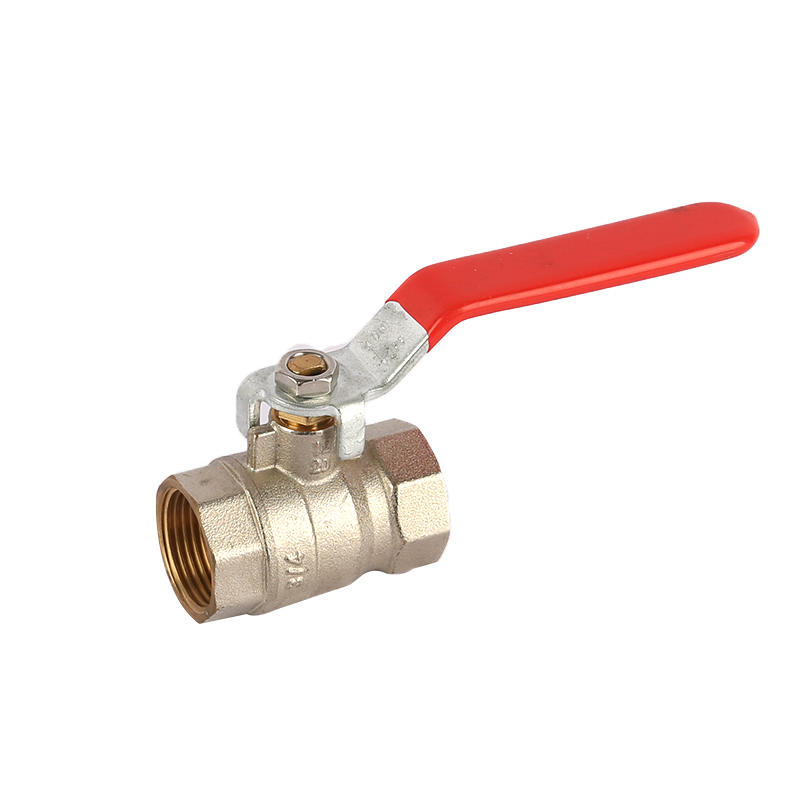The Anatomy of a Brass Ball Valve
A brass ball valve consists of a hollow, spherical ball with a bore running through its center. A lever or handle is attached to the ball, allowing for manual control of the valve. The ball is typically made of brass, a durable and corrosion-resistant material, while the body can also be brass or other materials such as stainless steel or PVC. The key components of a
brass ball valve include:
Ball: The central ball is the most crucial part of the valve. Its rotational movement determines whether the valve is open or closed. When the handle is turned perpendicular to the flow, the valve is closed, and when it aligns with the flow, the valve is open.
Body: The body provides the housing for the ball and contains the inlet and outlet ports. Brass, known for its strength and corrosion resistance, is a common material choice for the body.
Seats and Seals: Seats and seals made of materials like PTFE (polytetrafluoroethylene) create a tight seal when the valve is closed, preventing leakage.
Versatile Applications
One of the key attributes of brass ball valves is their versatility. They find applications across a wide range of industries, including:
Plumbing: Brass ball valves are commonly used in residential and commercial plumbing systems to control water flow. They are ideal for shut-off applications, such as isolating sections of a plumbing network for maintenance or repairs.
Industrial Processes: These valves are vital in industrial settings for controlling the flow of various fluids, including chemicals, gases, and oils. Their robust construction and resistance to corrosion make them suitable for demanding environments.
Agriculture: In agricultural applications, brass ball valves play a crucial role in managing irrigation systems, controlling water distribution, and regulating the flow of fertilizers and pesticides.
HVAC (Heating, Ventilation, and Air Conditioning): Brass ball valves are employed to control the flow of refrigerants and water in HVAC systems, ensuring efficient heating and cooling operations.
Advantages of Brass Ball Valves
Durability: Brass is a robust material that can withstand high pressures and temperatures, making brass ball valves long-lasting and reliable.
Corrosion Resistance: Brass exhibits excellent resistance to corrosion, ensuring the valve's integrity even in challenging environments.
Ease of Operation: The simple lever or handle design allows for easy manual operation, making it user-friendly for both professionals and homeowners.
Precise Control: Brass ball valves offer precise control over flow, enabling users to regulate the rate of fluid movement with precision.
Minimal Maintenance: These valves require minimal maintenance due to their durable construction and reliable sealing mechanisms.
Brass ball valves are the unsung heroes of fluid control systems, offering versatile and reliable solutions across a wide array of applications. Their elegant design, durability, corrosion resistance, and ease of use make them a top choice in various industries. Whether you are managing a complex industrial process, maintaining a plumbing system, or regulating fluid flow in agricultural irrigation, the brass ball valve stands as a testament to engineering excellence and remains an essential component in fluid control systems.

